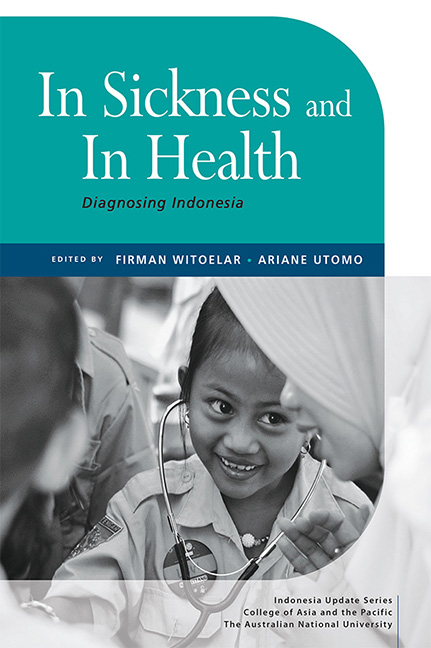7 - Navigating access to health care in Indonesia: A sociostructural analysis
Published online by Cambridge University Press: 09 January 2024
Summary
Ensuring timely access to quality health services is a basic human right. All people, regardless of their social location, race, economic circumstances, cultural background, sexual orientation or gender, should have equitable access to essential health services (WHO 2015a). From a government perspective, safeguarding responsive and appropriate access to essential health services is one of the key objectives of health systems (WHO 2000, 2007). In most instances, people interact with health systems as patients who require expert opinion and treatments about their health concerns. People’s access to such services is influenced by at least three key dimensions of access: availability, affordability and acceptability (WHO 2015b). Availability refers to the physical presence and reach of the health facilities, workforce and services, whereas affordability refers to the ability of patients or communities more broadly to pay for the health services (ibid.). Acceptability deals with the sociocultural components of health services to ensure the delivery of quality, appropriate, timely and responsive health services (ibid.).
Inequitable access to health care is a recurring health system challenge in Indonesia, given the country’s demographic, geographic, economic, sociocultural and political characteristics. The emergence of the COVID‑19 pandemic in March 2020 has amplified existing access and health inequities within communities and between different population groups across Indonesia. As observed in other countries, the pandemic has led to disproportionate consequences, both mortality and morbidity, among socially and economically disadvantaged populations (Bambra et al. 2020; Dorn et al. 2020). The inequitable access to health care during the pandemic is exacerbated further by the interconnected systemic risks such as inequities in wealth, lack of social protection, unfair employment structure, food insecurity, and maldistribution of health infrastructure and resources (Bambra et al. 2020). For instance, existing government priorities and decisions embedded in sociopolitical infrastructure and economic forces have allowed the pandemic to discriminate against marginalised groups.
Ensuring access to affordable and comprehensive health services, therefore, requires interventions beyond the individual level to include these interrelated structural and political determinants of health. Designing new institutions and mechanisms to address the structural causes of access inequities requires critical examination of how problems and their solutions are framed.
- Type
- Chapter
- Information
- In Sickness and In HealthDiagnosing Indonesia, pp. 113 - 131Publisher: ISEAS–Yusof Ishak InstitutePrint publication year: 2022

